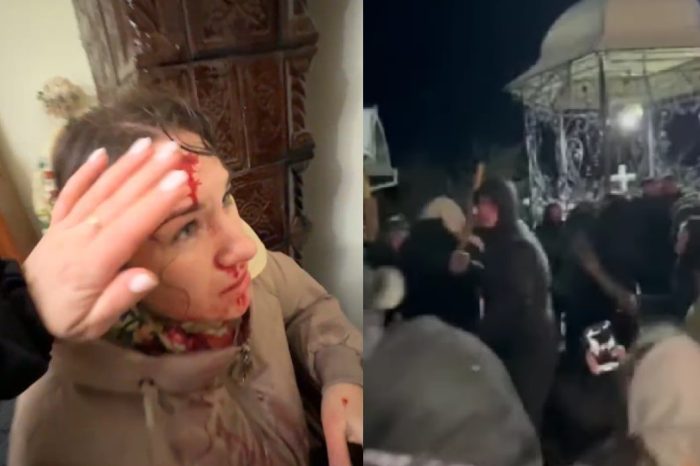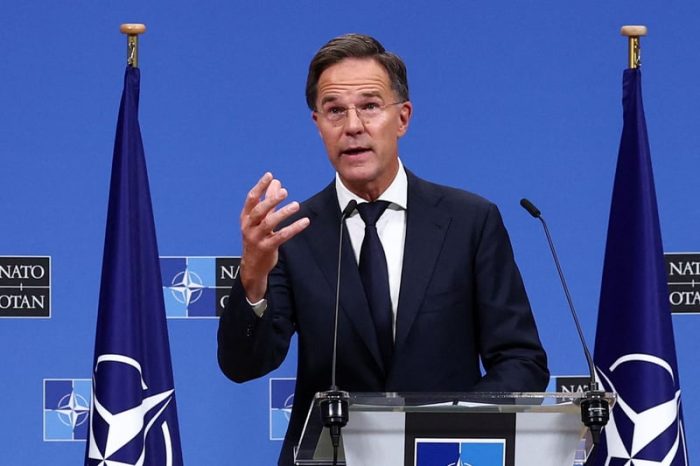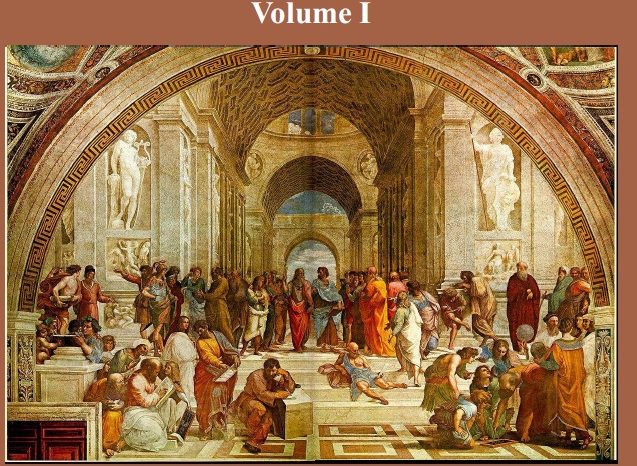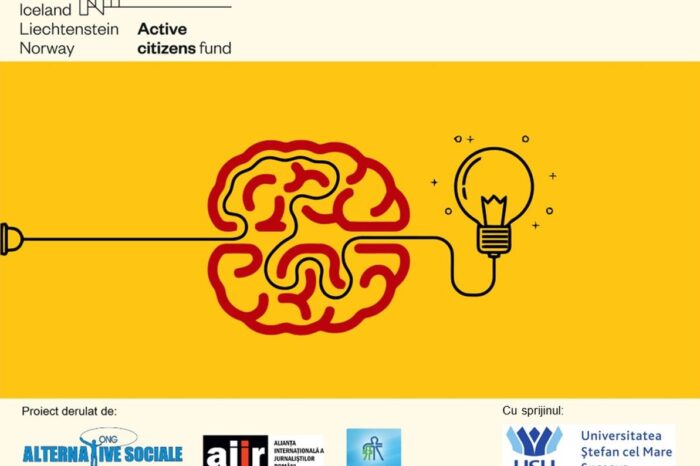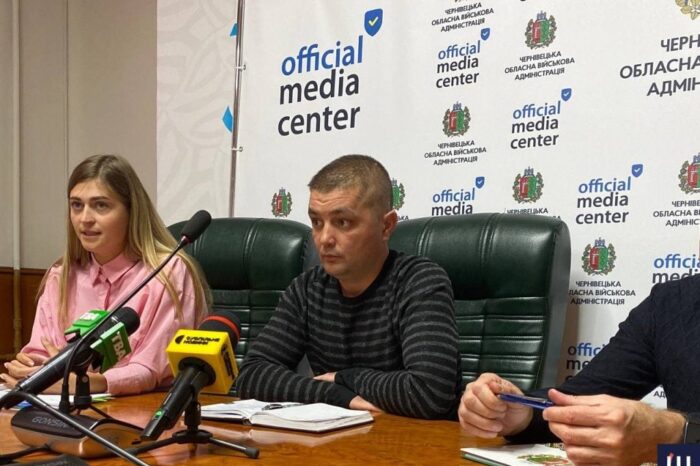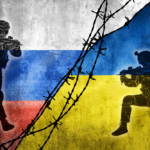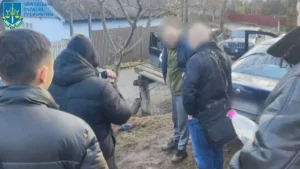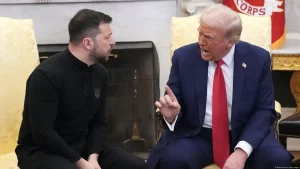The Evolution of the Russian Federation’s Official Anti-Ukraine Discourse (2014-2022)

The article focuses on the evolution of the Russian Federation’s official discourse concerning Ukraine, from the annexation of the Crimean Peninsula in 2014 to the official decision to invade the Ukrainian state on February 24, 2022. During this period, various official messages were launched in the public sphere to prepare Russian society for the next phases of the hybrid war or were designed to shape a series of social attitudes on the territories of other states that would favour political leaders in Moscow. The Kremlin resorted to a plethora of specific communication tactics: the launch of several official narratives at the same time, some of which were subsequently discarded; challenging the legitimacy of Kyiv authorities; fostering the idea that Ukraine was an artificial state created by Russia; launching certain debates in the public sphere regarding the historical unity of the Russian and Ukrainian peoples as well as the build-up of neo-Nazi tendencies on Ukrainian territory. Official narratives endorsed by the Russian Federation were a special mix of international law and historiography topics. Russian media outlets disseminated them as part of disinformation and fake news campaigns. This paper is an analytical effort to organize official Russian narratives about Ukraine promoted over 2014-2022, before the large-scale invasion.
Keywords: Russia, Ukraine, hybrid warfare, disinformation, fake news, narratives
Author: Marin Gherman
DOI: https://doi.org/10.4316/CC.2023.01.10
Codrul Cosminului. Issue 1 (Vol. 29) / 2023, pages: 193 – 216
University of Suceava Publishing House, Department of Human, Social and Political Sciences, 2006-2023
Fragment:
OFFICIAL NARRATIVES ABOUT THE ANNEXATION OF CRIMEA
After the pro-European protests in Ukraine, known as “Euromaidan”, and the flight to Russia of President Viktor Yanukovych, on March 4, 2014, Vladimir Putin said Ukraine witnessed “an anti-constitutional coup and a military takeover”. The Kremlin leader said Viktor Yanukovych “surrendered the power”, although he remains Ukraine’s legitimate president. Vladimir Putin pointed out that the new regime in Ukraine does not represent the people, simply adding that only the Supreme Rada (the Parliament of Ukraine), which also included a pro-Russian majority parliamentary group, was a “partially legitimate” entity[1]. It was the first official sign of Moscow’s unwillingness to recognize the legitimacy of the new Ukrainian authorities after Viktor Yanukovych stepped down following his refusal to sign the EU Association Agreement in Vilnius in the autumn of 2013[2].
When referring to the events in Ukraine as a “coup”, Russian President Vladimir Putin highlighted the fact that the only legitimate entity on the territory of Ukraine is the Parliament of the Autonomous Republic of Crimea. The Kremlin leader gave assurances that Moscow is not considering the possibility of “annexing” the peninsula to Russia. “The situation is tense in Crimea, and the possible use of armed force is simply out of the question”[3], the Russian president went on to say.
It is worth mentioning that in 1996, Moscow mayor Yury Luzhkov wrote for “Izvestia”[4] that the Crimean Peninsula must be returned to Russia, and that Sevastopol is historically a Russian city. What followed was a series of statements from the mayor of Moscow and the supporters of this idea, which were criticized by the Ukrainian authorities at the time. The idea of Russia annexing Crimea did not become the official rhetoric of Moscow, but various Russian nationalist leaders now and then reiterated it in the public sphere.
On March 18, 2014, two weeks after the Russian president had announced Crimea would not be annexed to the Russian Federation, Vladimir Putin signed an agreement with the self-proclaimed leaders of the peninsula. A new subject of the Russian Federation thus emerged – the Republic of Crimea[5]. Moscow annexed Crimea despite protests from the Ukrainian authorities and the international community. Vladimir Putin’s statement on March 4, 2022, when he promised Russia would not occupy Crimea, also included an out-of-character acknowledgement of the Crimean Parliament’s legitimacy amidst ongoing talks about the “coup” in Ukraine. Two weeks later, the narrative was used to justify Russia’s illegal annexation of the Ukrainian region. The March 18, 2014 agreement was at its core based on the principle of legitimacy of political institutions in Crimea, which had allegedly decided on its own to join the Russian Federation.
Breaking the verbal promise not to annex Crimea was dismissed as a topic for debate in the Russian public sphere and was subsequently used by Vladimir Putin as a smokescreen. A year after the annexation of Crimea, the Russian TV channel Rossiya 1 broadcast the documentary Crimea. The Way Home[6], in which the Russian president described the occupation of the peninsula as a planned operation. The annexation of the Ukrainian territory was presented as a “historical necessity”. Vladimir Putin argued he had issued a secret decree to annex the peninsula, ordering a group of servicemen to take control of the administrative buildings. The Russian president confirmed that every action aimed at capturing Crimea had been planned, claiming that the peninsula is” historically a Russian territory”.
Official Russian narratives concerning Crimea are both interrelated and divergent. At the start of the crisis in Ukraine, Vladimir Putin claimed that a military intervention on the peninsula was out of the question. Two weeks later, the Russian president and the self-proclaimed leaders of Crimea signed an agreement on the annexation of this territory. A year later, Vladimir Putin went public to provide a more detailed explanation, saying that he had coordinated a secret military operation to annex the Ukrainian region over the course of several months. Concerning the Russian president’s statements about Crimea, the scenarios that did not play out or the political promises that remained unfulfilled were ignored in official communications as if they had never existed in the first place.
The pattern behind the evolution of the Russian president’s statements regarding Crimea reveals a certain ambiguity as well as some hidden messages. The official narrative launched on March 4, 2014, was meant to convey a message that might have seemed of secondary importance at the time. Vladimir Putin tried to convince the public that only the Crimean Parliament was legitimate so that he could subsequently justify the annexation of the peninsula. The 2015 official narrative, addressed to all Russian citizens, was designed to consolidate popular support for the Russian Federation’s foreign policy. The authorities continued to refer to the annexation of Crimea as a historical act of reunification of this peninsula with Russia.
[1] Serghei Smirnov, Putin: My ne rassmatrivaem variant prisoedineniya Kryma [Putin: We are not considering the annexation of Crimea], in “Vedomosti”, https://www.vedomosti.ru/politics/articles/2014/03/04/putin-nachal-press-konfernenciyu (Accessed on 03.04.2023).
[2] Ukraine Protests After Yanukovych EU Deal Rejection, in https://www.bbc.com/news/world-europe-25162563 (Accessed on 11.04.2023).
[3] Serghei Smirnov, Putin: My ne rassmatrivaem….
[4] Yury Luzhkov, Sevastopol rossiiskii gorod na krymskom poluostrove [Sevastopol is a Russian city on the Crimean Peninsula], in “Izvestia”, 1996, Nov. 1, p. 3.
[5] Dogovor mezhdu Rossijskoj Federaciej i Respublikoj Krym o prinyatii v Rossijskuyu Federaciyu Respubliki Krym i obrazovanii v sostave Rossijskoj Federacii novyh subektov [Agreement between the Russian Federation and the Republic of Crimea on the Admission of the Republic of Crimea to the Russian Federation and the formation of new subjects within the Russian Federation], in http://kremlin.ru/events/president/news/20605 (Accessed on 04.04.2023).
[6] Krym Put na Rodinu. Dokumentalnyi film [Crimea. The Way Home], in https://smotrim.ru/video/1188898 (Accessed on 04.04.2023).
Urmăriți-ne pe Telegram

